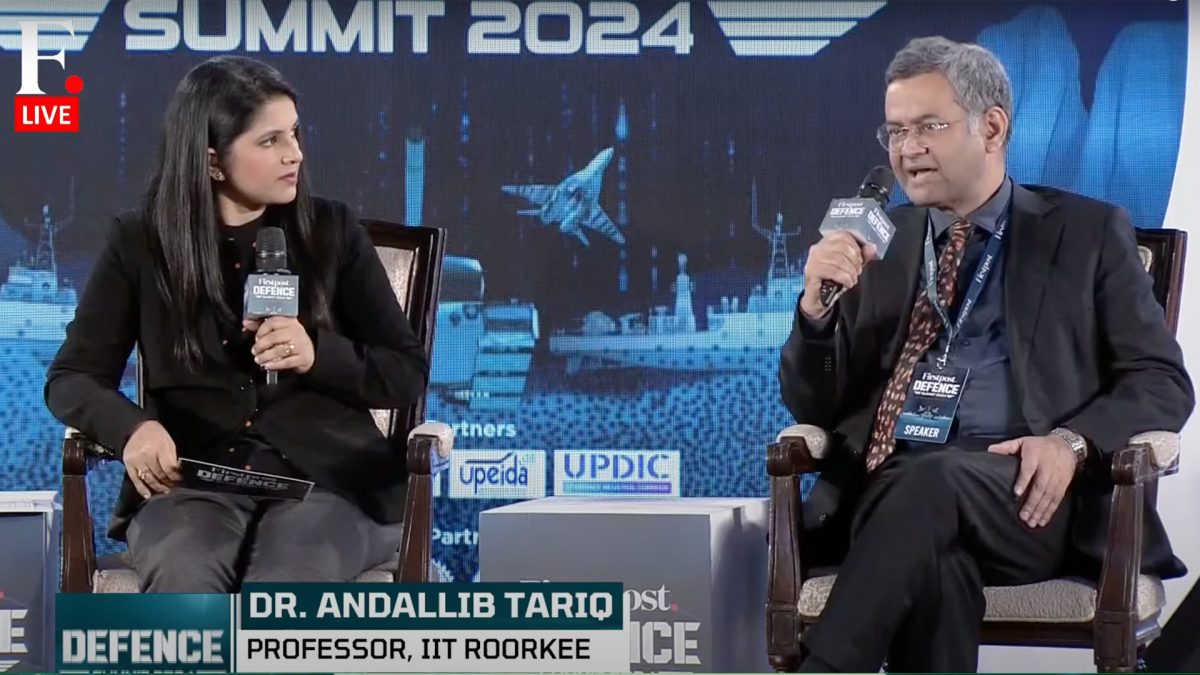Although India has been lagging in the manufacturing of chips, especially for AI, we have a very unique advantage, says Dr Andallib Tariq, IIT Roorkee.
“We need to develop chips indigenously, that is the hardcore technology so that we can implant our own instruction so that there is no outside interference,” said Dr Tariq, while speaking at the Firstpost Defence Summit, in New Delhi.
In its nascent stages, autonomous technology boasts unparalleled agility and precision, distinct from conventional warfare methods. Its micro-level operations render it capable of executing tasks without the need for extensive human intervention. However, this autonomy introduces a conundrum—while it holds promise for enhancing efficiency, it also presents ethical dilemmas and security threats.
India has an advantage there in terms of human resources. We have very strong manpower support. We have a lot of people who can code software as well as people who can manufacture, so we can decide how to control this technology as we develop it, he explained. “From that perspective, we have the edge. The journey of AI has just started basically in a decade or something,” he explained
And right now, we have all that kind of manpower, we can go in that direction so that we can be a leader in that way. We can design the software, we can design the coding, how to control that one,
Crucially, the absence of comprehensive global regulations leaves a void fraught with risks. Without stringent oversight, autonomous systems could be wielded for nefarious purposes, endangering both military assets and civilian populations. The potential for misuse extends beyond traditional warfare scenarios, infiltrating civilian domains and exacerbating vulnerabilities.
As the world witnesses the emergence of autonomous technology, particularly in the realm of robotics and drones, it becomes imperative to dissect its multifaceted implications. At its core, autonomous systems encompass three pivotal components: simulation, target identification, and robotic integration, each bearing significant weight in shaping the technology’s trajectory, he explained
Impact Shorts
More ShortsMoreover, the interconnected nature of autonomous systems via the internet introduces an additional layer of complexity. Much like the spectre of cyberattacks on automated systems, the prospect of rogue autonomous entities underscores the need for robust cybersecurity measures and international cooperation.
In light of these challenges, the imperative for swift and decisive action is clear. Global stakeholders must collaborate to devise regulatory frameworks that strike a delicate balance between innovation and accountability. Failure to act swiftly risks unleashing a box of ethical quandaries and security breaches, with far-reaching consequences for humanity’s collective future, explained Dr Tariq.
)